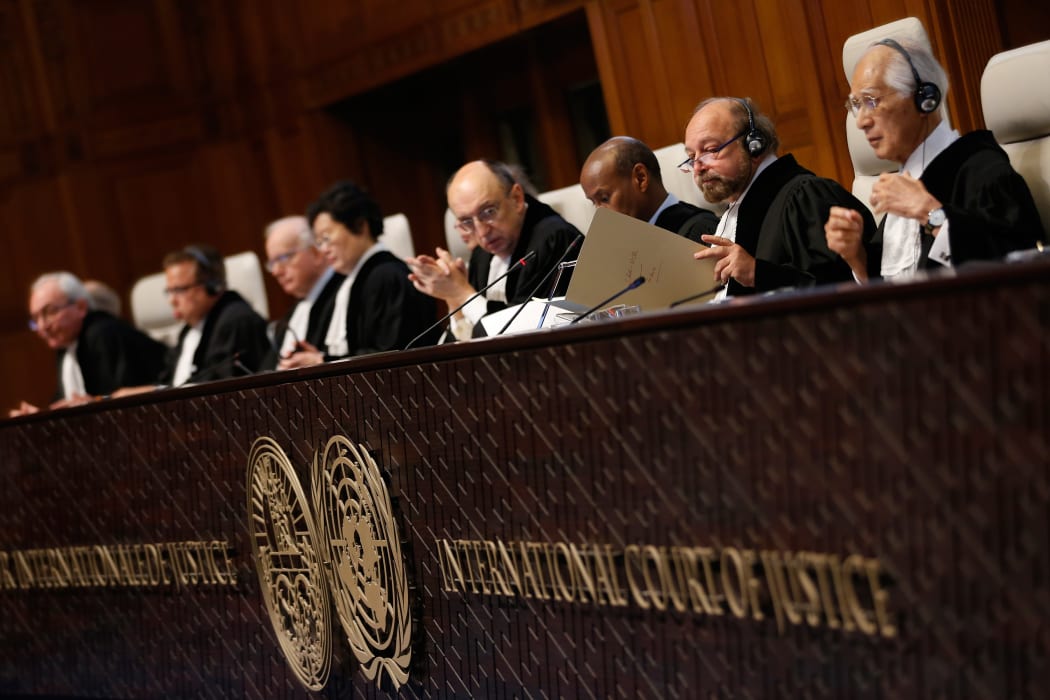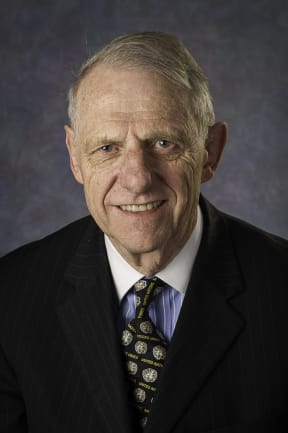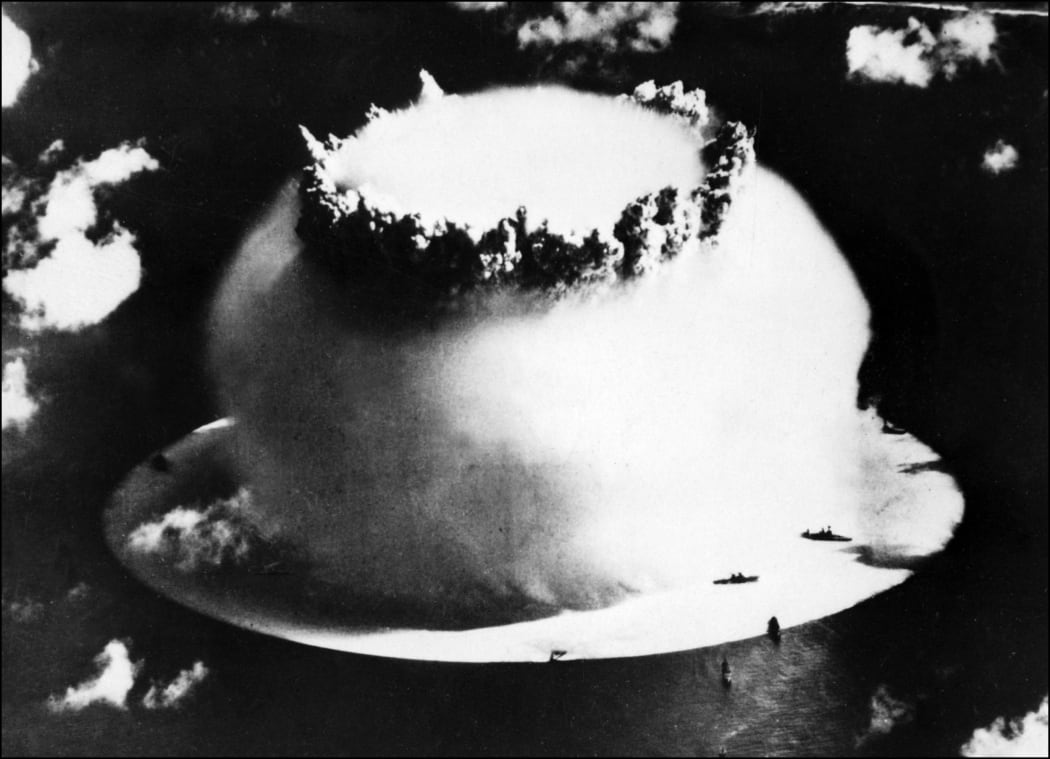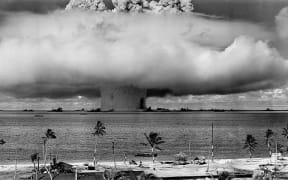A New Zealander working on a lawsuit to hold nuclear powers to account is excited about the team's nomination for a Nobel Peace Prize.

International Court of Justice president Ronny Abraham, second right, examines a document during a court case in December 2015 (file). Photo: AFP
Professor Roger Clark is part of an international team representing the Republic of the Marshall Islands, which includes Bikini Atoll.

Professor Roger Clark Photo: Supplied
The islands have launched a legal bid at the International Court of Justice in The Hague to hold accountable the nine countries in possession of nuclear weapons.
Mr Clark said the team of eight lawyers had done a lot of hard work, and he was thrilled to be part of it.
"What we are arguing about in March is the quite technical question of jurisdiction."
Between 1946 and 1958, the United States detonated 60 nuclear weapons on the islands, the equivalent of 1.7 Hiroshima bombs detonated daily for a dozen years.
Professor Clark, who began his law studies at Victoria University, and is now based at Rutgers University in New Jersey, said the case would be hard to win but he thought they had a shot.
The legal system in the court was quite different to others and there had been a lot of hard work, particularly in the past few weeks, he said.
"Co-ordinating eight lawyers from Italy, the UK, the US and Holland is an interesting feat and the most complicated piece of litigation I've ever engaged in."
It was a strange court to argue in, he said.
"You have to give them a written copy of your oral argument beforehand and then you basically read the oral argument.
"It's not like in New Zealand or Australian court where you can have an interchange with judges."
A statement from Rutgers University said if the team's arguments were successful it could "further the cause of total nuclear disarmament".
The case, which is being taken against the United Kingdom, India and Pakistan, accuses nuclear-armed states of breaching obligations under international law to negotiate in good faith to rid the world of weapons of mass destruction.
"The hearings in March explore whether these three states have properly accepted the jurisdiction of the court over the cases," the statement said.
"The United States has declined to accept the court's jurisdiction over these issues."
Professor Clark had previously presented a case at the International Court of Justice on behalf of Samoa in 1995 and 1996 to outlaw nuclear weapons.
Hearings on the Marshall Islands case begin in March.
The Nobel Peace Prize Laureates will be announced in October, with a ceremony in Oslo in December.

A file photo from July 2014 shows an atomic bomb explosion in Bikini Atoll. Photo: STF / AFP


